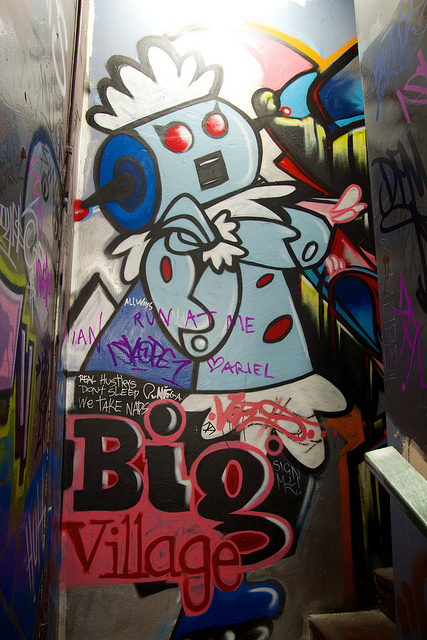Back in denim-clad, braided summers when we Generation Xers were left to raise ourselves, way before travel curling teams and 3-D coding camps, we goonies, banished from our homes until dinnertime, would gather in a lazy haze on a stoop or in the tall grass and fall into deep discussions on matters of national importance. Swedish Fish vs. Any Other Candy, for instance, or if it was an especially close group, Proper Bubble Blowing Technique.
But the most heated arguments by far, peppered with judgments and insults of epic proportions, centered on The Jetsons. In reruns in the GenX’s formative years, the 1962 animated series of a tech-filled 2062 hurled our imaginations into a near future where all conveniences would be computerized. Which invention would we want first? The food replicator or vacuum tube transport? The TV phone or flat screens stored in the ceiling? The flying car or the jet pack?
For the kids in my town, a poor backwater hidden on the top of a mountain, the reigning tech of choice was the jet pack. Being one of the youngest in the group, I always agreed. I understood the desire; My young eyes and my little ears were big enough to catch our neighborhood’s scenes of domestic violence and alcohol abuse. The jet pack’s personal propulsion provided immediate and forever escape. 
Secretly, though, I wanted Rosey. That robot maid was not simply the Jetson’s family’s housekeeper, she was its moral center and fierce protector. I wanted a robot made of rivets and casters and a computer brain full of practical logic. Rosey was caring, clean, and a perfect protector and companion. I didn’t want escape; I wanted a solution.
Fast forward to now, a future with awe-inducing robotic advances like the Roomba, Siri, Asimo, Kismet, Jibo, and drones. The newest addition is Botlr, a rolling computer that makes deliveries in service of a Silicon Valley hotel. But my jet pack GenXers don’t seem impressed. In a recent Slate article, Alex Soojung-Kim Pang, author of The Distraction Addiction, wrote about Botlr that human butlers need not fear for their jobs yet. Judging by Botlr’s design and features, Pang writes, engineers should “pay attention to what butlers actually do.”
“Butlers turn out to do lots of hard, hidden work in order to create an atmosphere that is ‘unhurried, untroubled, and not informal, but full of ease,’ as one put it,” Pang reports. The argument here is age-old: nothing can replace humans. Rosey the Robot won’t ever read a furrowed brow. Siri will never sense sarcasm.
Here we are, GenX grown up, left to raise ourselves in this digital age, and we’re opting for the jet pack of stories. Fill up those fuel cells of human fitness. Rev up the rockets of righteousness. Instead of the soaring imaginativeness of our youth, we have the same will-they-replace-us anxieties of every other generation before us.
Something about this idea – that we are unique and our value as humans lies in that irreplaceability – makes us feel better. But I anticipate a lot of angst coming our way if we stick to that story. The robots are here, more are coming, and the kids you spent your summers with will be the cyborgs down the street. The Industrial Revolution is now over 250 years old. It’s time to stop asking the same old panicked question. The answer is yes, the robots will replace us. They already have replaced humans in a myriad of ways (especially if you include computers). Let’s stop trying to escape that already-here future and let’s start working on what we want our coming future to look like.
Will drone deliveries be OK or annoying? What will the US Postal Service look like? Is the Internet a public utility, like gas and electricity, or is it to be a private enterprise with slow lanes and fast lanes that go to the highest bidder?
These are the water cooler dust-ups we should be having. Our GenX imagination is unlike any generations’ before us, for it was formed in a world of moon landings and laser beams. It can’t be fettered with all the old fears. It’s up to us to forge forward, to not seek escape but instead form solutions. It’s up to us to shape the future we want.
As for me, I still want my Rosey. But she’ll need to be able to fly the car and call the kids in for dinner.
Rosey Pic: JAM Project on Flickr
Jetpack pic: Steve Jurvetson on Flickr

